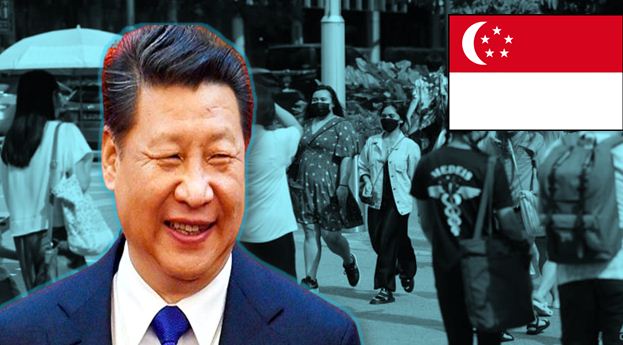Singapore has entangled itself in a vicious relationship with China. The communist nation is seeing its economy unwinding right before its eyes, and it can do nothing about it. Singapore, which is known as an economic powerhouse in Southeast Asia is today seeing its famed label being snatched away. Singapore has nobody but itself and its political leadership to blame for the crisis it today finds itself in. Singapore’s core inflation in January rose to 2.4 per cent on a year-on-year basis, the highest level in more than nine years.
According to the Monetary Authority of Singapore (MAS) and the Ministry of Trade and Industry (MTI), such a spike was driven by higher inflation for food and electricity and gas, as well as a slower pace of decline in the cost of retail and other goods. On a year-on-year basis, food inflation in January picked up, rising to 2.6 per cent from 2.1 per cent the month before.
Electricity and gas inflation in January rose to 17.2 per cent in January from 10.7 per cent the month before (December 2021). In what comes as extremely distressing news for Singapore, MAS and MTI said core inflation is forecast to pick up further in the near term and could reach 3 per cent by the middle of the year before easing in the second half of 2022 as external inflation recedes.
According to Channel News Asia, for 2022, core inflation is projected to average 2 per cent to 3 per cent, while overall inflation is forecast to come in within 2.5 per cent to 3.5 per cent.
Singapore and its Ties to China
In 2020, Singapore’s portfolio investment assets in China amounted to 262.76 billion Singapore dollars. Since 2013, China has been Singapore’s largest trading partner, and Singapore has been China’s largest foreign investor. As of 2019, Singapore accounted for 5.5% of all foreign direct investments in China – which is the highest among all foreign nations investing in China.
Singapore has been betting bullishly on China for years now. However, for the past one-and-a-half-year, the Chinese economy has been on a very shaky pedestal and the communist nation’s $50 trillion financial system is the most fragile it has ever been. There is growing uncertainty within China, and as a consequence, heightened discomfort within Singapore.
Read more: Singapore must untangle itself from China before it is too late
The bilateral trade between China and Singapore developed rapidly in recent years, and Singapore has maintained the first position among ASEAN countries in their trade with China. With growing uncertainty in China and its flawed domestic policies, Singapore has dug its grave.
For the past three years, Singapore has been posting unusual budget deficits. COVID-19 pandemic and the overall impact of it on Singapore’s aviation and tourism industry has led to a slowdown of sorts in the Singaporean economy. So, Singapore has begun raising personal income taxes for the affluent. This has impacted the business environment of Singapore negatively, leading to spooked investors fleeing the city-state which managed to create a huge economy of around $379 billion.
Unnecessary overdependence and inclination towards China seem to have landed Singapore in the mess it is in today. Isolated measures at dissociating from China are indeed taking place, but they are just too late. The ill effects of having great business ties with China are already beginning to take a toll on the health of Singapore’s economy.
